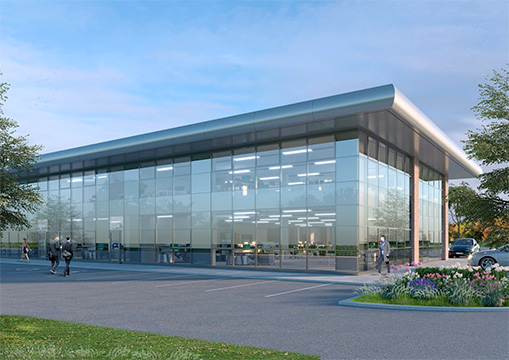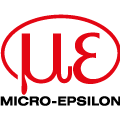
Posted to News on 17th Jun 2022, 09:25
Fanuc to open dedicated new robotics facility in Ireland

Roughly a year after Fanuc announced, in June 2021, that it intended to serve customers from premises in Ireland with a dedicated team and full local representation, this summer will see the robotics and automation company collect the keys for its new facility in Maynooth, Co Kildare.
Off the back of a strong start to this fiscal year the company is demonstrating a strong commitment to its growing Irish customer base, supporting the government’s aim to place the country at the forefront of the Fourth Industrial Revolution by 2025.
“We announced that we planned to have an initial team of five and here we are, as promised,” says Conor O’Kelly, one of two Ireland-based sales managers now in place; the other is Ronan Rasdale. Two service engineers and a technical support engineer complete the team.
There have been plans for an Irish subsidiary of Fanuc Europe for a while; the impact of Covid-19 and the restrictions on international travel accelerated them. “Previously, our Irish customers would have had to travel to Coventry in England, but we can now offer organised, in-house training for our larger customers and scheduled courses catering for smaller groups, from our dedicated Irish facility here in Maynooth,” continues Conor. “In addition, the showroom at our new headquarters will be stocked with robots for demonstration, evaluation and test purposes.”
Most of the island is reachable from Maynooth in about three hours, and many of Fanuc’s customers and partners are within 90 minutes’ drive of the new facility. Its launch could not be timelier, coinciding with the implementation of the Irish Government’s wider industrial strategy. According to the ‘Making it in Ireland: Manufacturing 2020’ report, Ireland’s manufacturing sector contributes 25% of GDP and employs 205,700 people directly, rising to 400,000 when indirect employment is considered.
There were 16,700 firms in the manufacturing sector in Ireland in 2017, with Irish-owned companies representing 97% of these. At 35%, manufacturing’s share of Ireland’s GVA (gross value add) is more than double the average of the Euro area. ‘Ireland’s Industry 4.0 Strategy 2020-2025’ is a key output of Future Jobs Ireland, the Government’s economic pathway.
“Ireland doesn’t have a traditional industrial background in, for example, automotive manufacture but we make a lot of agricultural machinery, and the country has established a global reputation in pharmaceuticals, chemicals, food and beverage, medical devices, computers, electronics and engineering. SMEs account for a significant proportion in those key sectors,” says Conor, whose own background is in life sciences.

















